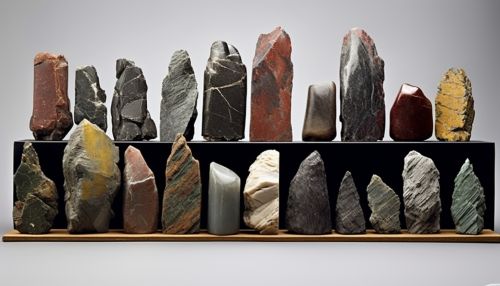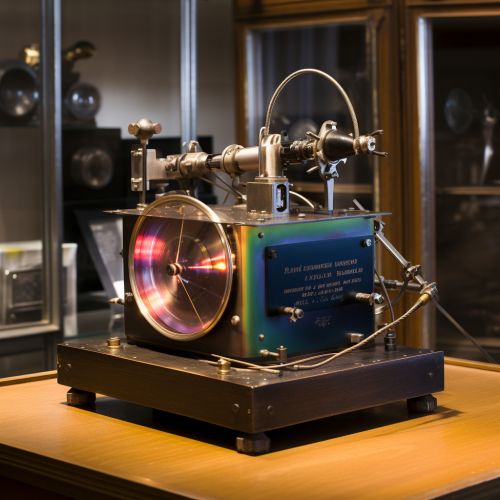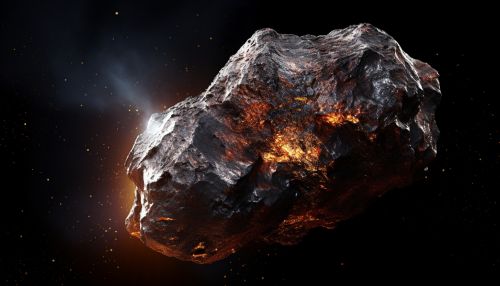The Role of Geochemistry in Earths Composition Study
Introduction
Geochemistry is a branch of earth science that involves the study of the chemical composition and processes of the Earth and other celestial bodies. It combines aspects of chemistry, physics, and geology to understand the Earth's formation, structure, and changes over time. Geochemistry plays a crucial role in studying the Earth's composition, providing insights into the Earth's history, the processes that have shaped it, and the resources it contains.


Principles of Geochemistry
Geochemistry operates on several fundamental principles. The first is the law of conservation of mass, which states that matter cannot be created or destroyed, only transformed. This principle is fundamental to understanding geochemical processes, as it allows scientists to track the movement and transformation of elements in the Earth's system.
The second principle is the concept of isotopic fractionation, which refers to the variation in the ratios of isotopes of a particular element due to physical and chemical processes. This principle is used in geochemistry to understand processes such as radiometric dating, climate change, and the formation of mineral deposits.
The third principle is the concept of chemical equilibrium, which refers to the state in which the rates of forward and reverse reactions are equal, resulting in no net change in the concentrations of reactants and products. This principle is used in geochemistry to understand processes such as mineral dissolution and precipitation, and the interaction between the atmosphere, hydrosphere, and lithosphere.


Geochemical Techniques
Geochemical techniques involve the use of various analytical methods to measure the chemical composition of rocks, minerals, and other geological materials. These techniques include spectroscopy, mass spectrometry, and x-ray fluorescence, among others.
Spectroscopy involves the interaction of light with matter to determine the chemical composition of a sample. Mass spectrometry involves the separation of ions based on their mass-to-charge ratio to determine the isotopic composition of a sample. X-ray fluorescence involves the emission of characteristic "secondary" (or fluorescent) X-rays from a material that has been excited by bombarding with high-energy X-rays or gamma rays.
These techniques allow geochemists to measure the concentrations of elements and isotopes in samples, providing insights into the Earth's composition and the processes that have shaped it.


Applications of Geochemistry
Geochemistry has a wide range of applications in earth science and related fields. These include the study of the Earth's crust and mantle, the dating of rocks and minerals, the study of the Earth's climate history, and the exploration for mineral and energy resources.
In the study of the Earth's crust and mantle, geochemistry provides insights into the composition and evolution of these parts of the Earth. For example, the study of the isotopic composition of rocks can provide information on the age and origin of the Earth's crust, while the study of the chemical composition of mantle-derived rocks can provide information on the composition and processes of the Earth's mantle.
In radiometric dating, geochemistry provides a means to determine the age of rocks and minerals. This is achieved by measuring the ratios of parent and daughter isotopes in a sample, which allows the calculation of the time elapsed since the rock or mineral formed.
In climate studies, geochemistry provides a means to reconstruct the Earth's climate history. This is achieved by studying the isotopic composition of ice cores, sediment cores, and other geological records, which can provide information on past temperatures, precipitation, and atmospheric composition.
In resource exploration, geochemistry provides a means to identify areas with potential mineral and energy resources. This is achieved by analyzing the chemical composition of rocks, soils, and waters, which can indicate the presence of mineral deposits or hydrocarbon reservoirs.


Future of Geochemistry
The future of geochemistry lies in the development of new techniques and the application of geochemistry to new areas of research. Advances in analytical techniques, such as high-resolution mass spectrometry and synchrotron radiation techniques, are allowing geochemists to measure the composition of samples with greater accuracy and precision. These advances are providing new insights into the Earth's composition and the processes that have shaped it.
At the same time, geochemistry is being applied to new areas of research, such as the study of extraterrestrial materials and the exploration for deep-sea mineral resources. These new applications are expanding our understanding of the Earth and the universe, and providing new opportunities for resource exploration and development.


